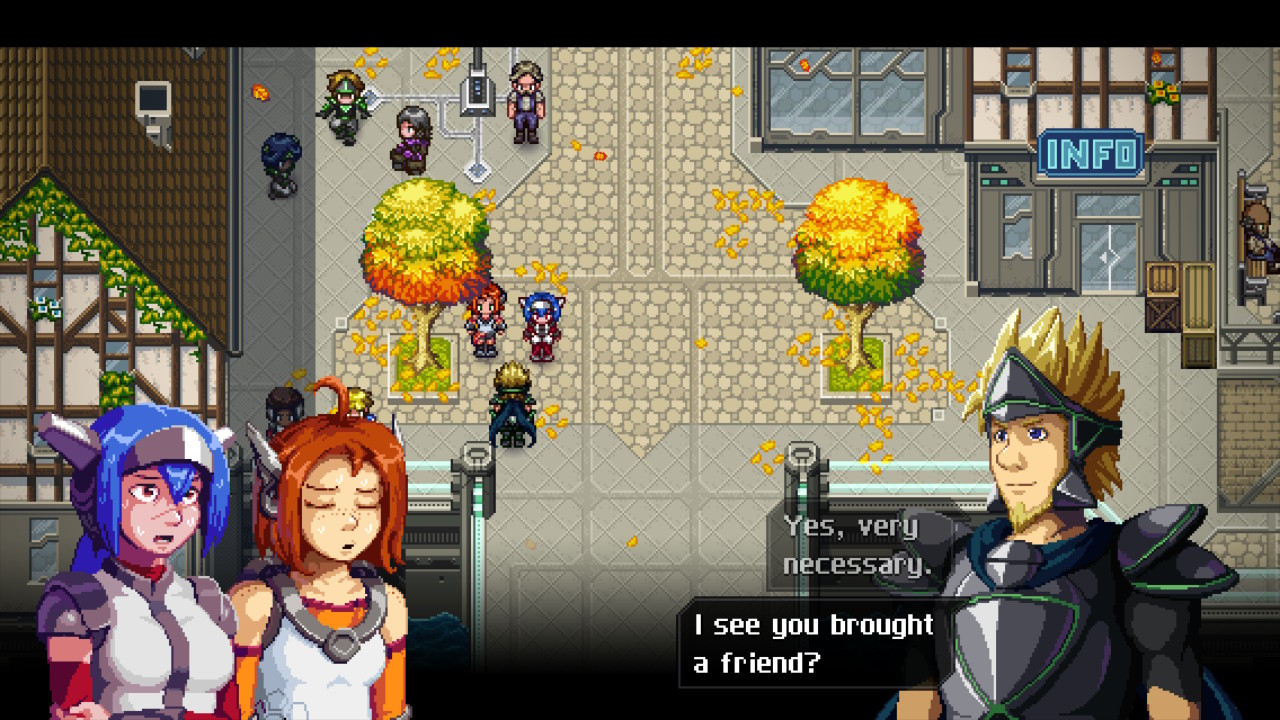iMore Verdict
Bottom line: CrossCode is a cute RPG that hearkens back to classics of old. Beyond just the styling, however, CrossCode contains plenty of complexity, deep menus, and tons of character build customization. There's a lot of stuff here, like a lot, but CrossCode ultimately struggles with bringing it all together in a meaningful way. It's a fun game, but approach it knowing that, once the nostalgia wears off, you'll be left with an RPG puzzler that's just too self-aware for its own good.
Pros
- +
Beautiful and classic art style
- +
Engaging combat
- +
Relaxing soundtrack
- +
Plenty of complexity and build diversity
- +
Interesting setting and story
Cons
- -
Some sluggish performance
- -
Can feel a bit grindy at times
- -
Puzzles everywhere
- -
Humor loses its impact after a while
- -
Tries to do too much
You can always trust iMore.
Growing up in the 90s and 00s, I had the privilege of witnessing and engaging in what some call the heyday of gaming. From game guides to game magazines to just word of mouth at school, those were interesting times. All-time greats came from that era, games that defined genres and generations.
CrossCode is a game that wants to remind us of the good ol' days. Nostalgia is a powerful drug, they say, and it's a tactic that CrossCode uses. This game is a retro-styled RPG that's been available on PC since 2018, but now consoles are joining the party.
For the most part, I really enjoyed my time with CrossCode. The Switch port struggles in places, but the game itself is engaging, complex, and an excellent experience for those who enjoy the classic 16-bit RPGs and action adventures of our youths. CrossCode is definitely a throwback, but it does its best to carry forward the torch that 3D games picked up so long ago. However, it stumbles in places and generally feels bloated.
Oh, and be ready to throw a lot of balls.
CrossCode: What I liked
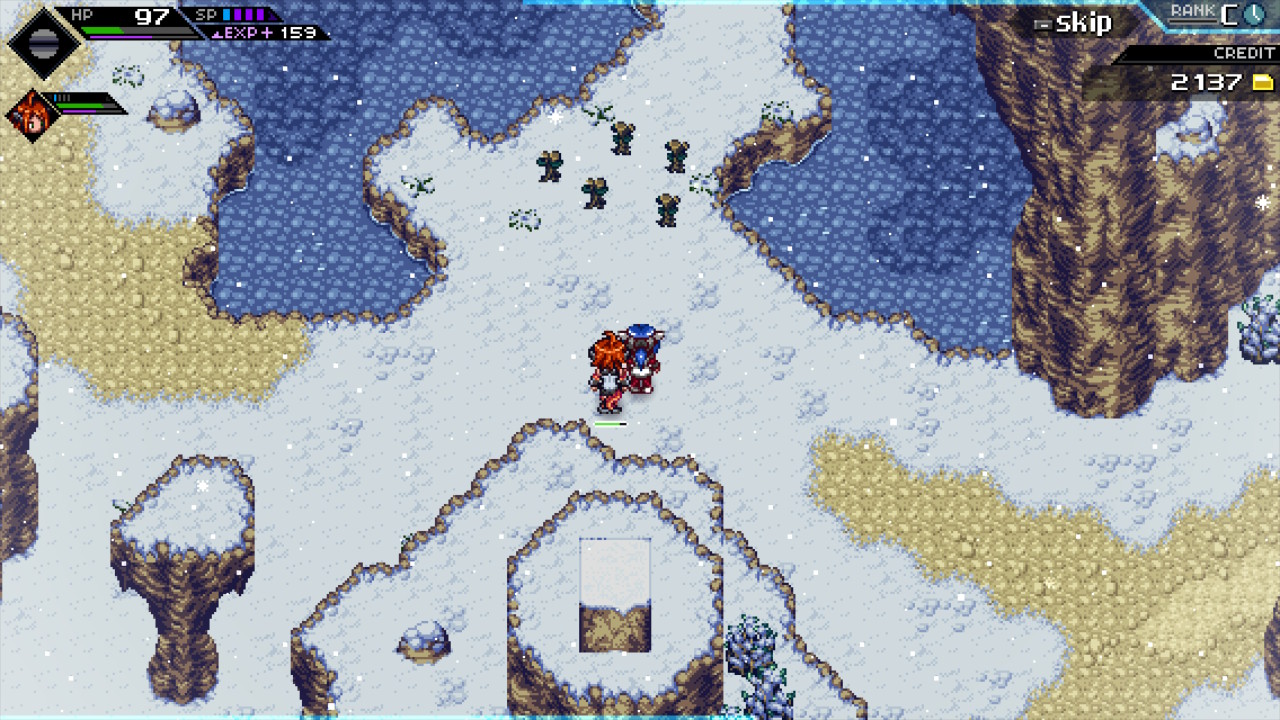
CrossCode is obviously a love letter to classic 16-bit RPGs and action adventures of old, like Chrono Trigger, Secret of Mana, and even some old-school Legend of Zelda thrown in. From the chiptune music to the sprites, there's a lot to love from the outset of the game.
In CrossCode, you'll be fighting a lot of enemies and solving a metric ton of puzzles — we'll talk more about that in a bit. But you'll also meet a massive cast of characters along the way, some of whom will join you on your journey throughout the CrossWorlds. Each one you'll encounter is unique, though some are just there to either be a trope themselves or to poke fun at one. CrossCode is a character-driven story, and those characters have a real emotional impact.
Much like Sword Art Online, CrossCode is a game within a game. You play as an avatar, a virtual representation in the CrossWorlds. The game within CrossCode is an MMO, as these futuristic VR games tend to be, and you'll see NPC "players" running around on their own quests or hanging out in towns. It's a neat concept (and one of the reasons why I've always liked Sword Art Online). Beyond that, however, is a meta-narrative, one that questions the typical MMO tropes and archetypes. You'll read this meta-narrative from the characters you meet along your journey.
iMore offers spot-on advice and guidance from our team of experts, with decades of Apple device experience to lean on. Learn more with iMore!
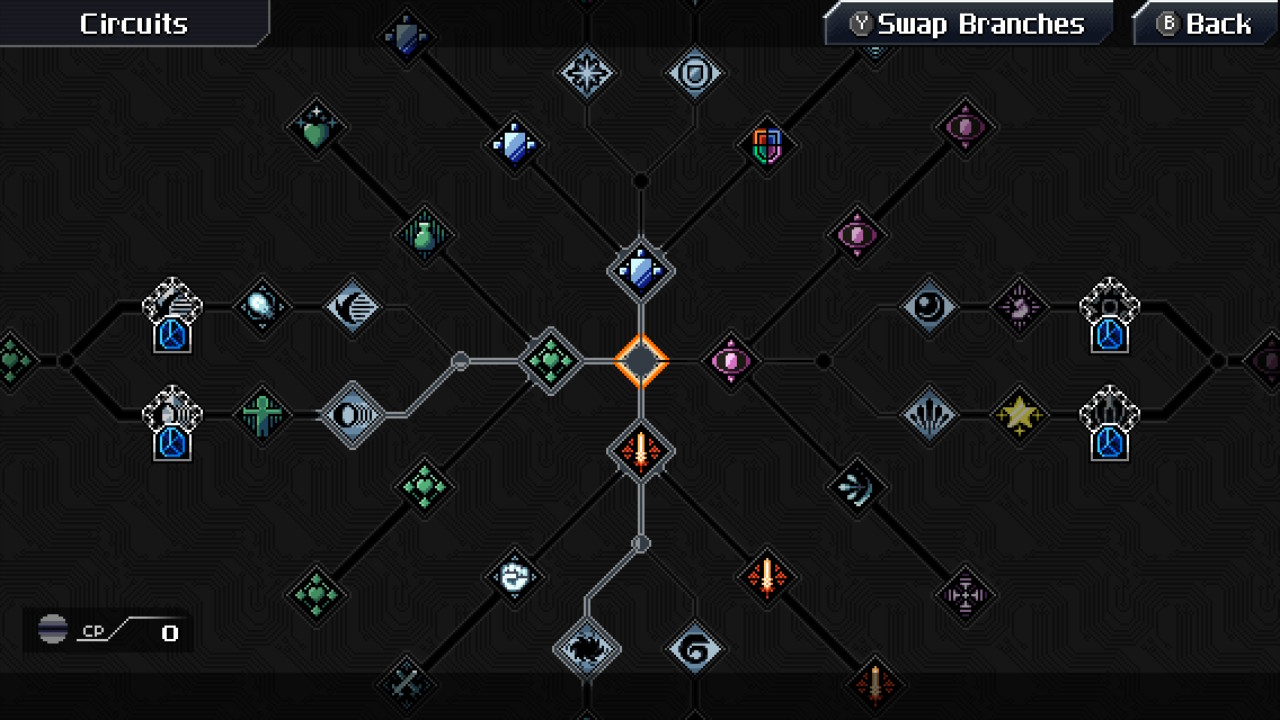
Besides the beautiful art style, combat is one of the best parts of CrossCode. You have a melee and a ranged option, the latter of which can be used to solve puzzles in dungeons and the overworld. Your combat skills are paired with your equipment stats, like attack power and defense, and your character skills. CrossCode ensures that you're always thinking on your feet, often asking you to switch seamlessly between hitting, throwing, blocking, and dodging within the span of mere moments.
The skill tree is one of the quadruple branching paths setups. You first select a main node then follow its path outward, choosing (and switching between) branches that you unlock. These can add new attacks or passive buffs to make gameplay easier. As you might expect, there's a lot of build diversity here, and it certainly tries to encourage replaying the game again to spec your character differently.
CrossCode: What I didn't like
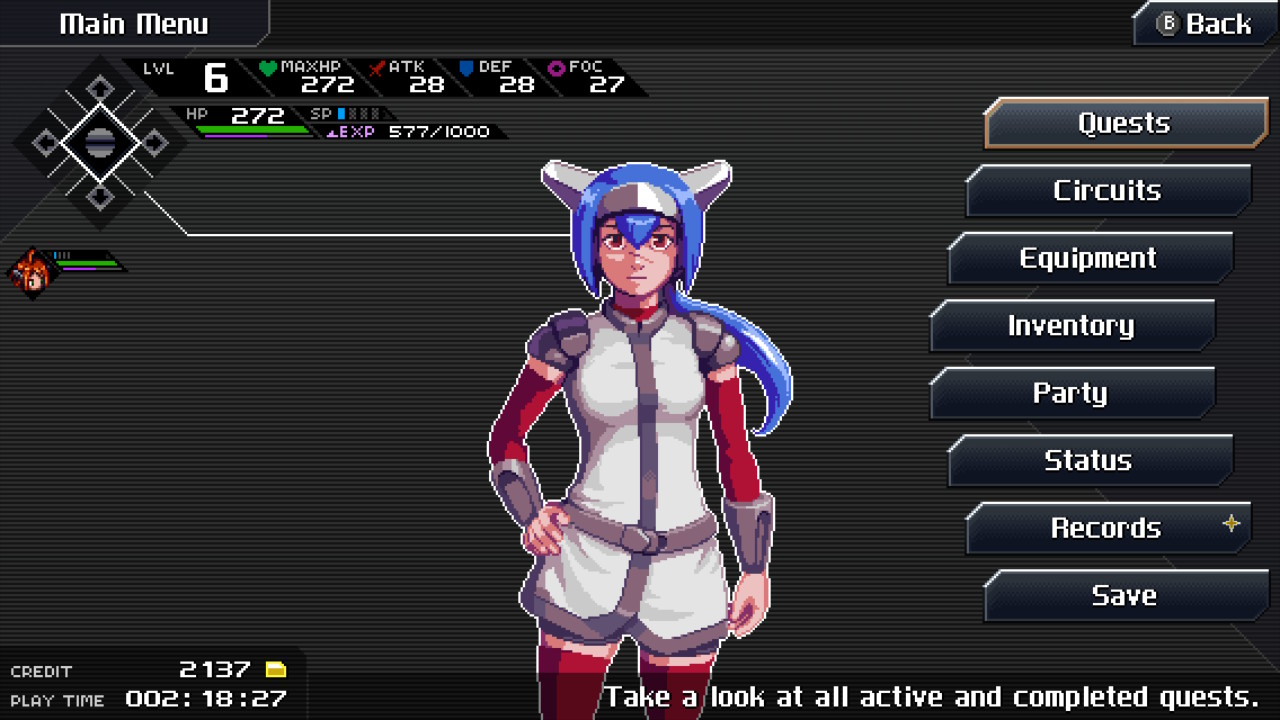
CrossCode is very self-aware, beyond the point of being funny or witty. At first, it gave me quite a few chuckles having party members comment on the combat — an early one will continuously talk about cows when you slay these bison-like creatures in the first overworld area. But after the third time, I was beyond annoyed, and it just kept going. The humor in CrossCode starts off pretty awesome, but it quickly overstays its welcome. I realize how cranky that makes me sound, but you can only take so much of this before you're tired of it.
Being an RPG, you're encouraged to fight everything to gain EXP and earn points to spec into your character's skill sheet. And like other RPGs that also directly encourage this behavior, this leads the player to grinding. That's fine, but it definitely breaks up the really good flow that CrossCode sets up. I eventually started skipping a lot of enemies that I wasn't required to kill because, despite the fact that the combat is good, I was bored.
If you're going to pick up CrossCode, then you're going to be solving more puzzles than killing enemies. There are so many puzzles. It's ridiculous. I saw someone else equate the number of puzzles to those you'd find in Breath of the Wild's optional mini-dungeons, and they're quite right. I was so tired of this part of the game that I had to start taking more breaks after the initial euphoria for the game wore off.
The sheer amount of puzzles forced me to take multiple breaks from frustration and exhaustion.
I like puzzles, don't get me wrong, and I don't mind puzzle games; I play them all the time on mobile. I even like them in my RPGs, but the extent to which CrossCode integrates them into its core loop is way more than I'd ever want to see. One of the characters even comments on it, so the developers knew exactly what they were doing. The vast majority of these puzzles are required to pass through the dungeons, though some are for optional chests in the overworld.
Honestly, I find that puzzles make the game feel bloated, over-full of what would otherwise make it great, a feeling that sunk in after I hit the 15-hour mark. This led me to ruminate further, and I found that CrossCode's sheer ambition backfires on it more than a few times. The map is huge but doesn't really contain much to do except, you guessed it, some more puzzles and combat.
This leads to a sense that CrossCode is trying to do too much, which can easily overwhelm the player. Yes, I just got done praising the build diversity and deep menus, but the scope of everything packed into this game feels a bit much in the end.
Switch port: Some slight performance issues
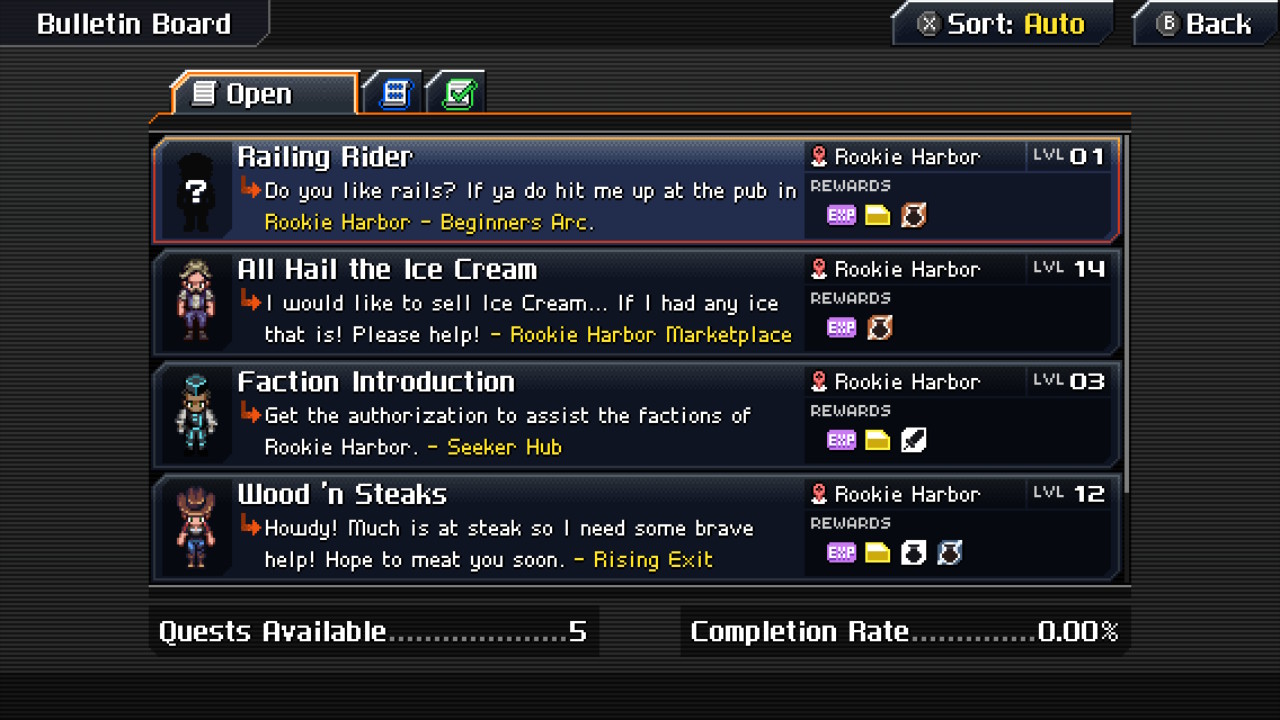
Reviewing any game on the Switch, you have to be prepared for some kind of wonkiness to arise. It doesn't always happen with third-party games, mind, but my experience has taught me to on the lookout for specific things. CrossCode is a mostly great port. It does suffer from stuttering, frame drops, and noticeable sluggishness at points, however.
Opening menus is where you'll see what I'm talking about a lot. The game hung when opening the equipment, skills, or party screens, and the transition animations would sometimes stutter. I don't think that it detracts from the game as a whole, but be warned if you decide to pick up the Switch version.
CrossCode: Should you buy it?
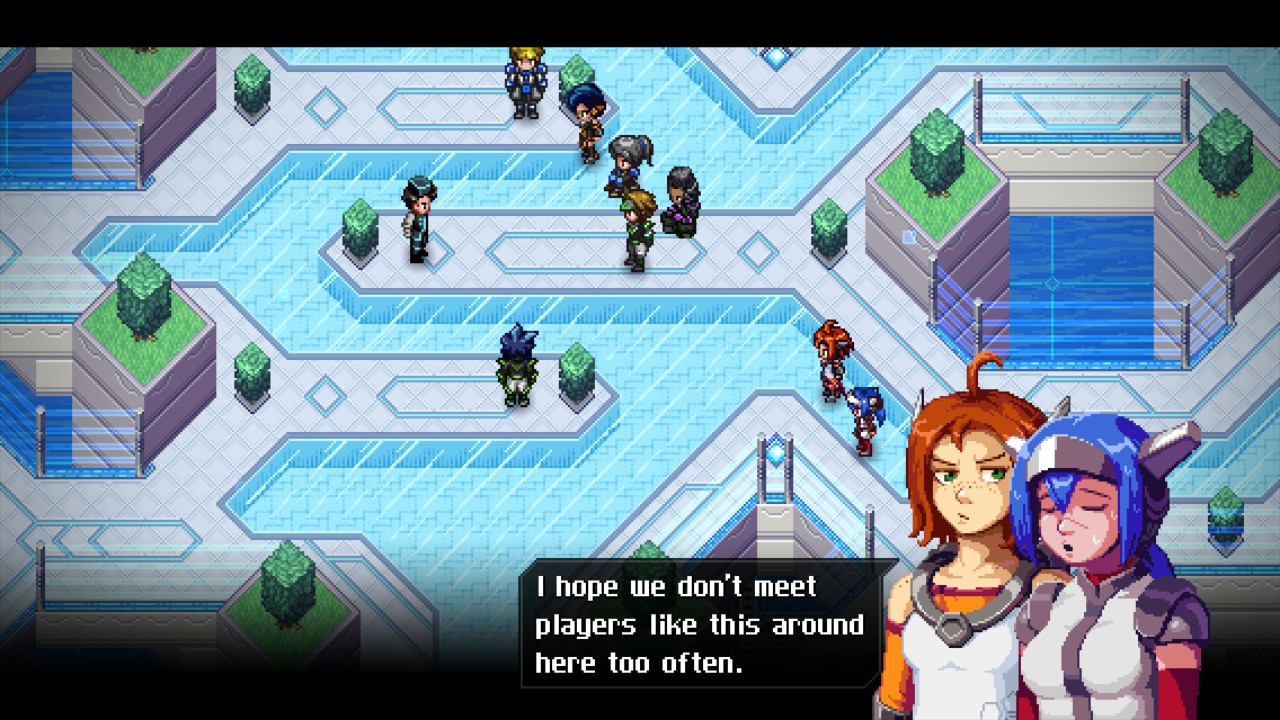
CrossCode is a fun retro-style RPG that's good for many hours of play for the asking price. I enjoyed the diverse cast of characters, the meta-narrative (even if it's a bit on the nose), and the combat. I love the music and the bright art style — this game evokes a ton of nostalgia and is a great way for the younger generations to experience what it was like to play the classic 16-bit RPGs.
However, not all is perfect. Puzzles are a serious problem; they were fun at first, but the enjoyment I got from them died very quickly. The sheer amount of them forced me to take multiple breaks out of frustration and exhaustion. I'd complete one, and then there'd be another one on the next screen. It's fine to pack puzzles into dungeons — The Legend of Zelda is renowned for this — but it needs to be a balanced experience. Sprinkle puzzles in your RPG, not an RPG into your puzzler.
I sound over-negative, and I don't mean to. CrossCode is a good game; it's just not a great one. Again, for the asking price, I think it's a fun romp through a 16-bit adventure. Puzzles may, indeed, abound, but you have fun combat, great build diversity, and an interesting story and witty meta-narrative to look forward to. I don't think I'll pick up CrossCode again after having beaten it, but it was a good journey. Just be ready for when the nostalgia wears off.
CrossCode is available on PC, Xbox One, PS4, and Switch.
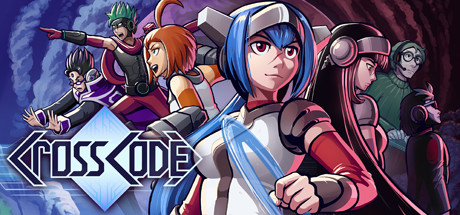
A really fun retro-style RPG
CrossCode launched on Switch and the other consoles last week after a couple of years on PC. Its retro 16-bit styling will be familiar for a lot of us who played the classics. Despite some small issues I experienced with the Switch port and the insanely large amount of puzzles, CrossCode is pretty good.
Jordan is a long-time gamer and PC hardware enthusiast. From the mid-90s on, he has constantly tinkered with computers and played every game he could get his hands on. Coming from a varied background, he found his passion in writing about Android in 2016, which also launched his writing career not long after. Now, Jordan is an avid gamer who just loves sitting down to play whatever game has his attention (or he's reviewing), and he's lucky enough to make a living out of doing so. You can find him on Twitter if you want to chat: @jccpalmer.
